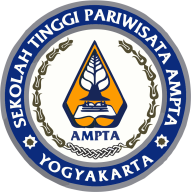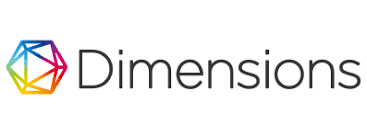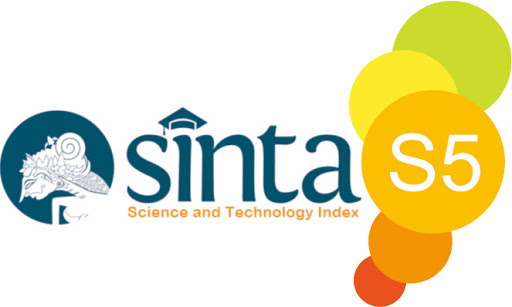About the Journal

Jurnal Abdimas Pariwisata (Journal of Community Service) is published twice a year, in January and July, by Sekolah Tinggi Pariwisata AMPTA Yogyakarta, Indonesia. This journal focuses on the results of community service activities in the field of tourism.
The scope of this journal covers various aspects of community service related to tourism planning and management, community empowerment, destination development, community-based tourism, hospitality, the hotel industry, cultural heritage preservation, and the social and economic aspects of tourism development.
OPEN ACCESS POLICY
This journal is an open access journal which means that all content is freely available without charge to users or / institutions. Users are allowed to read, download, copy, distribute, print, search, or link to full-text articles in this journal without asking prior permission from the publisher or author.
For various reasons, this kind of unrestricted online availability, which we will call open access, has so far been limited to small portions of the journal literature. But even in these limited collections, many different initiatives have shown that open access is economically feasible, that it gives readers extraordinary power to find and make use of relevant literature, and that it gives authors and their works vast and measurable new visibility, readership, and impact. To secure these benefits for all, we call on all interested institutions and individuals to help open up access to the rest of this literature and remove the barriers, especially the price barriers, that stand in the way. The more who join the effort to advance this cause, the sooner we will all enjoy the benefits of open access.
The literature that should be freely accessible online is that which scholars give to the world without expectation of payment. Primarily, this category encompasses their peer-reviewed journal articles, but it also includes any unreviewed preprints that they might wish to put online for comment or to alert colleagues to important research findings. There are many degrees and kinds of wider and easier access to this literature. By "open access" to this literature, we mean its free availability on the public internet, permitting any users to read, download, copy, distribute, print, search, or link to the full texts of these articles, crawl them for indexing, pass them as data to software, or use them for any other lawful purpose, without financial, legal, or technical barriers other than those inseparable from gaining access to the internet itself. The only constraint on reproduction and distribution, and the only role for copyright in this domain, should be to give authors control over the integrity of their work and the right to be properly acknowledged and cited.
To achieve open access to scholarly journal literature, we recommend two complementary strategies.
I. Self-Archiving: First, scholars need the tools and assistance to deposit their refereed journal articles in open electronic archives, a practice commonly called, self-archiving. When these archives conform to standards created by the Open Archives Initiative, then search engines and other tools can treat the separate archives as one. Users then need not know which archives exist or where they are located in order to find and make use of their contents.
II. Open-access Journals: Second, scholars need the means to launch a new generation of journals committed to open access, and to help existing journals that elect to make the transition to open access. Because journal articles should be disseminated as widely as possible, these new journals will no longer invoke copyright to restrict access to and use of the material they publish. Instead they will use copyright and other tools to ensure permanent open access to all the articles they publish. Because price is a barrier to access, these new journals will not charge subscription or access fees, and will turn to other methods for covering their expenses. There are many alternative sources of funds for this purpose, including the foundations and governments that fund research, the universities and laboratories that employ researchers, endowments set up by discipline or institution, friends of the cause of open access, profits from the sale of add-ons to the basic texts, funds freed up by the demise or cancellation of journals charging traditional subscription or access fees, or even contributions from the researchers themselves. There is no need to favor one of these solutions over the others for all disciplines or nations, and no need to stop looking for other, creative alternatives.
Open access to peer-reviewed journal literature is the goal. Self-archiving (I.) and a new generation of open-access journals (II.) are the ways to attain this goal. They are not only direct and effective means to this end, but they are within the reach of scholars themselves, immediately, and need not wait on changes brought about by markets or legislation. While we endorse the two strategies just outlined, we also encourage experimentation with further ways to make the transition from the present methods of dissemination to open access. Flexibility, experimentation, and adaptation to local circumstances are the best ways to ensure that progress in diverse settings will be rapid, secure, and long-lived.
PEER REVIEW PROCESS
Articles submitted to Jurnal Abdimas Pariwisata will be evaluated through 2 stages of review, i.e. pre-review and substance review.
The editorial team carries out the pre-review of the article to the conformity of the article with the focus and scope of the journal as well as the journal style and specific writing guidelines. Plagiarism checking is carried out by using Google Scholar and Turnitin software. Duration of review between 1-2 weeks.
At least two reviewers perform substantial single-blind reviews. Duration of review between 3-8 weeks. If desired, the reviewer may request a re-review after the author revises his/her article.
The Editor in Chief authorizes whether the article can be published by considering recommendations from reviewers. Articles that have been accepted and have been in the layout will be published in the In Progress issue before the regular issue is published on schedule. They can be indexable and citable immediately.
Each manuscript will be reviewed based on:
- Suitability between methods and research design with the aim
- Clear description of research procedures
- Interpretation of the facts and conclusions
- Compatibility between the discussion and the scope of the study
- Research results' contributions to education and science development
Journal Office

LEMBAGA PENELITIAN DAN PENGABDIAN MASYARAKAT
SEKOLAH TINGGI PARIWISATA AMPTA YOGYAKARTA
Jalan Laksda Adisucipto Km.6, Yogyakarta, Indonesia.
Telp. (0274) 485115
Email 1: jurnalabdimaspariwisata@gmail.com
Email 2: jurnal@ampta.ac.id








